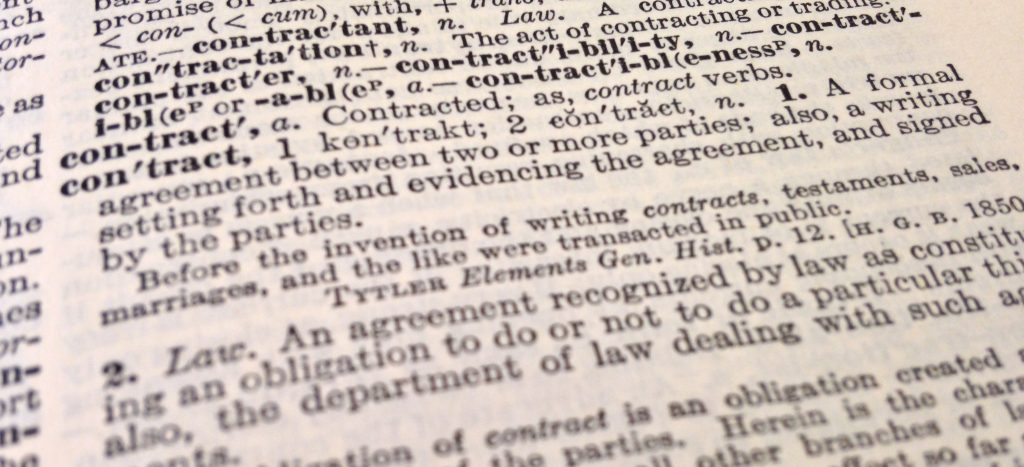Contracts are challenging, to say the least. Few people understand them (this includes lawyers) and yet they inform and govern most of our interactions every day. Consider, for a moment, how contracts affect what you are doing right now. You are probably reading this in a Web browser (here are Chrome’s terms of use and, for some variety, Firefox’s).
htxt.africa’s content is licensed to you under a Creative Commons — Attribution-NonCommercial-ShareAlike 3.0 Unported license and the device you are using also has a number of terms and conditions which govern your use of that device. If you happen to be listening to music, that is probably also subject to a license. If you bought that music from iTunes, well, you get the picture.
The point is virtually everything you do is governed by some sort of contract or legal framework. As a consumer, you don’t have all that much choice – you either accept the terms and conditions or you don’t use whatever they govern. What if you have had a contract prepared for your use? How do you know that the contract you paid a fair amount of money for is not rubbish? Contract writing styles vary but there are a few things to look out for.
You read it twice and still have no idea what it says
If you have read the document and you have no idea what it says you are almost certainly sitting with a poorly written contract. Your lawyer may well protest at the mere suggestion that his masterpiece is a well thought-out risk management machine on paper but if you don’t understand it, what is the point? Contracts are designed to introduce certainty and clarity to your relationships and to shape those relationships to suit your preferences, where possible. Once the contract is signed and your lawyer moves on to his next masterpiece, you are going to have to manage that contract and its implications and if you have no idea how to implement it, it may not be worth much more than the gilded frame your lawyer would love to see it presented in.
Leaving aside the content of your contract, it must be written in plain terms. The Consumer Protection Act introduced a plain language requirement for all consumer contracts but plain language was a best practice long before it was legislated. The best plain language test is whether you, a reasonably intelligent person not schooled in legal arcana, can read the contract and understand what it says, how it influences your relationships and what everyone is supposed to do.

